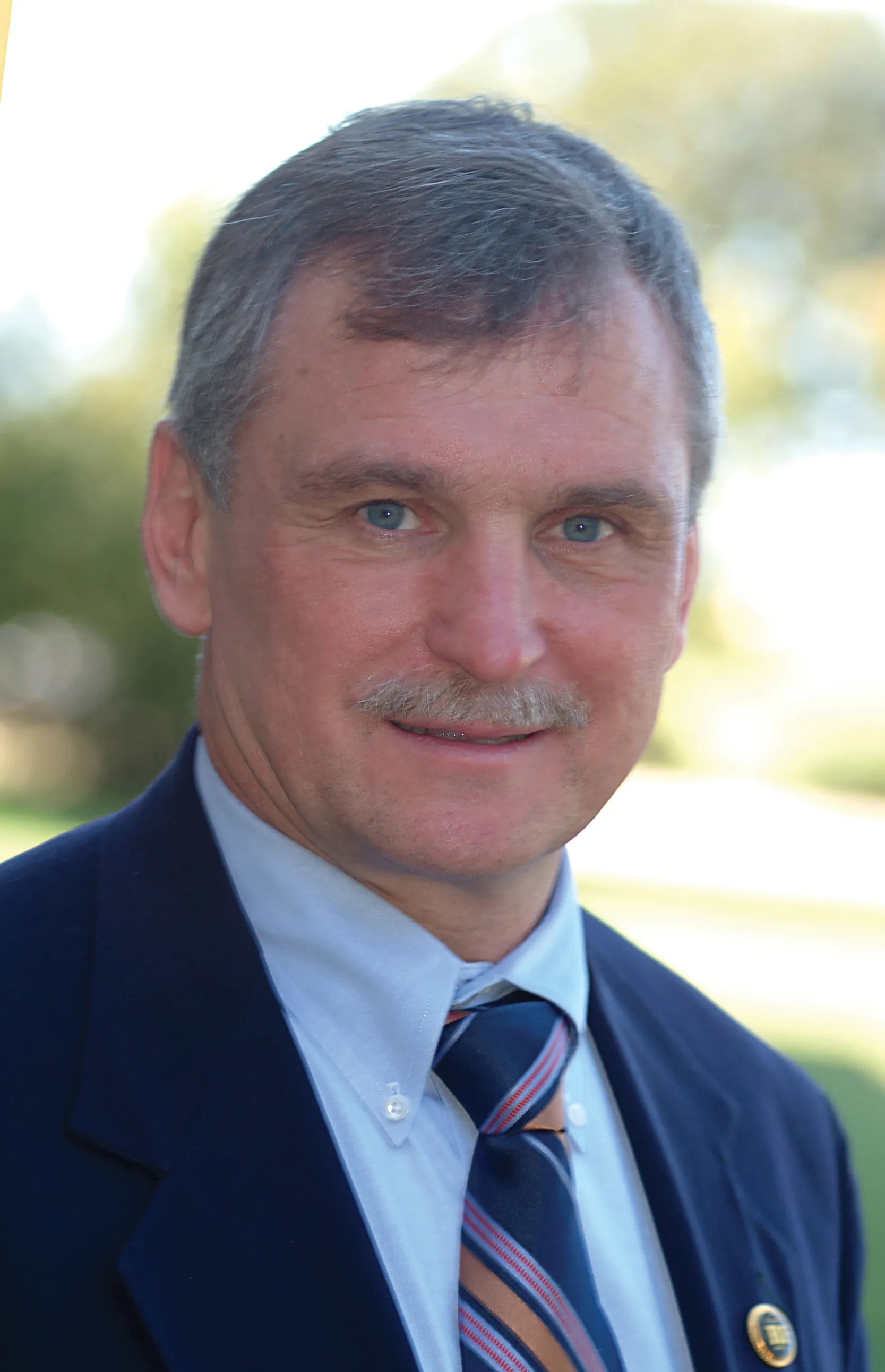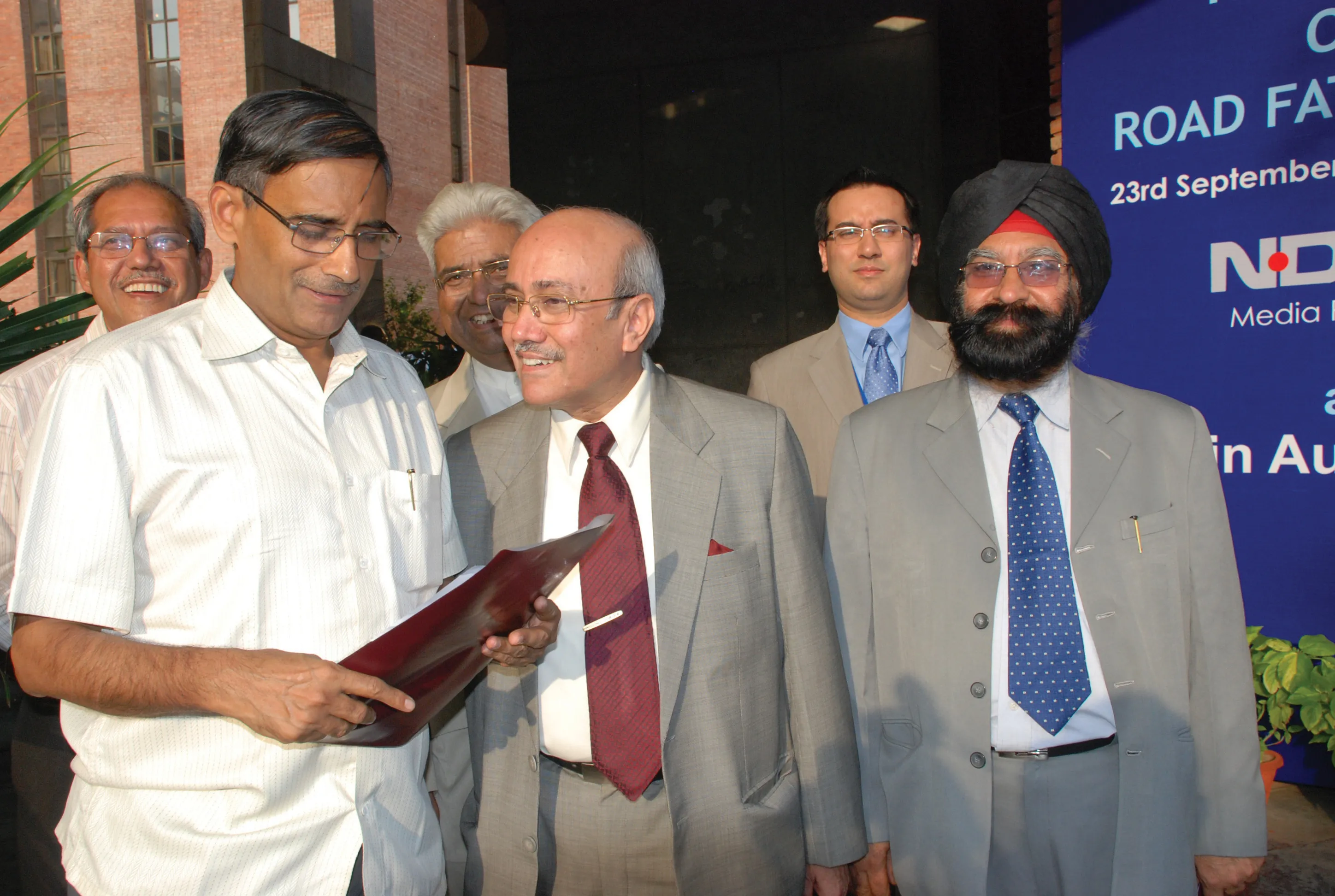IRF is pleased to announce the addition of Michael G Dreznes to the IRF Washington staff. Dreznes will serve as executive vice president with global leadership on training, policy and capacity-building activities across IRF's road safety programmes. "Mike has spent the last 26 years working to make roads safer around the world," said Patrick Sankey, president & CEO, IRF Washington. "He is recognised as one of the world's leading experts on roadside safety, pioneering the concept of Forgiving Highways, and w
April 11, 2012
Read time: 2 mins

IRF is pleased to announce the addition of Michael G Dreznes to the 3918 IRF Washington staff
Dreznes will serve as executive vice president with global leadership on training, policy and capacity-building activities across IRF's road safety programmes
"Mike has spent the last 26 years working to make roads safer around the world," said Patrick Sankey, president & CEO, IRF Washington. "He is recognised as one of the world's leading experts on roadside safety, pioneering the concept of Forgiving Highways, and we are thrilled to have him lead the road safety initiatives of IRF." Sankey continued, "One of his key areas of responsibility will be to work with road authorities around the world to utilise IRF's executive training on road safety (Safer Roads by Design). This programme has been designed to end needless deaths on the world's roads."
"IRF is where I can truly make a difference," added Dreznes. "Too many countries around the world are using obsolete roadside safety measures and technologies that should have been replaced twenty years ago. Working through a variety of instruments and with the support of IRF and its Members, I will collaborate with road authorities, concessionaires, design consulting engineers, academia and other safety stakeholders to encourage the replacement of outdate technology and to introduce state-of-the-art practices in countries around the world, thereby assisting governments with their commitment to the UN Decade of Action to reduce fatalities by 50% by 2020."
Dreznes is the co-chairman of the2774 Transportation Research Board Roadside Safety Design Subcommittee on International Research Activities; and a member of the TRB AFB20 Committee on Roadside Safety Design.
Dreznes will serve as executive vice president with global leadership on training, policy and capacity-building activities across IRF's road safety programmes
"Mike has spent the last 26 years working to make roads safer around the world," said Patrick Sankey, president & CEO, IRF Washington. "He is recognised as one of the world's leading experts on roadside safety, pioneering the concept of Forgiving Highways, and we are thrilled to have him lead the road safety initiatives of IRF." Sankey continued, "One of his key areas of responsibility will be to work with road authorities around the world to utilise IRF's executive training on road safety (Safer Roads by Design). This programme has been designed to end needless deaths on the world's roads."
"IRF is where I can truly make a difference," added Dreznes. "Too many countries around the world are using obsolete roadside safety measures and technologies that should have been replaced twenty years ago. Working through a variety of instruments and with the support of IRF and its Members, I will collaborate with road authorities, concessionaires, design consulting engineers, academia and other safety stakeholders to encourage the replacement of outdate technology and to introduce state-of-the-art practices in countries around the world, thereby assisting governments with their commitment to the UN Decade of Action to reduce fatalities by 50% by 2020."
Dreznes is the co-chairman of the









